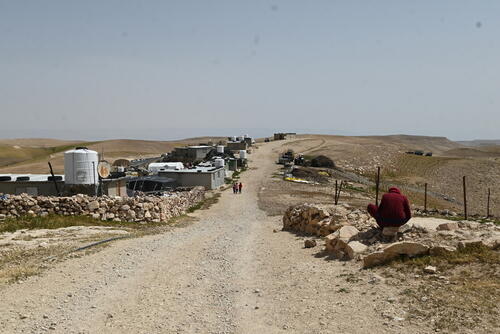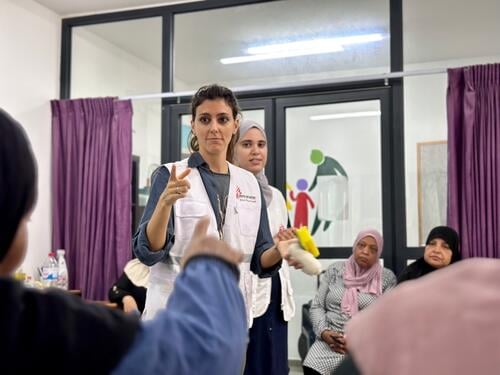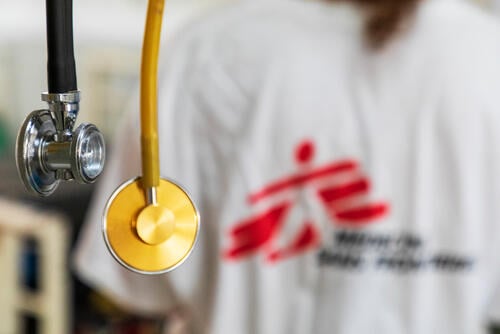“We walk for hours to reach the health facilities. Sometimes we use the donkeys to transfer sick people to the hospital or to the clinic,” says Mahmud Mousa Abu Eram, a Palestinian man from Hebron, in the West Bank, Palestine.
“There hasn't been transportation in this area for a long time, and even if there is a car to drop us to any clinic, the Israeli army confiscates the cars,” he says.
Hebron, located in a dry mountainous region known for its vineyards dating back thousands of years, is considered one of the oldest cities in the West Bank. But its rich history and that of the wider West Bank is also haunted by brutal violence, which has escalated in modern times.
One day when I was standing at the window, a settler saw me and complained to the soldiers. The soldiers stormed my house and destroyed everything in it.Anonymous MSF patient
While that violence might be nothing new, there has been a spike across the West Bank since 7 October, when the war in Gaza erupted. According to the United Nations Office for the Coordination of Humanitarian Affairs (OCHA), in the months following October 2023, 479 Palestinians have been killed, including 116 children, of whom 462 were killed by Israeli forces, 10 by settlers, and eight where it remains unknown whether the perpetrators were settlers or soldiers. Israeli forces and settlers killed one third of these Palestinians in refugee camps in or near Tulkarem and Jenin cities.
A strip of land situated between Israel and Jordan, the West Bank is an Occupied Palestinian Territory. Over 2.9 million Palestinians live in the area across 11 districts - among the people who live in the West Bank and nearby East Jerusalem approximately 630,000 are Israeli settlershttps://www.un.org/unispal/in-facts-and-figures/.
It’s estimated that around 61 per cent of the West Bank is off-limits to Palestinianshttps://www.un.org/unispal/in-facts-and-figures/. Checkpoints, roadblocks, and incursions by the Israeli army and settlers have long cut off towns and villages from each other and blocked Palestinians from accessing basic services including healthcare and food markets. This in turn has caused residents to run out of water, fuel, and other supplies, and hindered Palestinians from reaching their schools, work, family and friends.
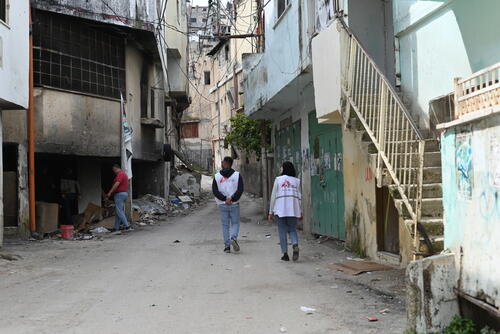
In the Hebron district of Masafer Yatta, for Palestinians, frequent roadblocks, military raids and attacks by settlers make accessing health facilities increasingly difficult. Local organisations also face various obstacles when trying to provide basic healthcare, including lack of funds, restrictions imposed by the Israeli army and attacks, which limits even further access to care for Palestinian people.
Meanwhile, the severity of the violence in Masafer Yatta has left many Palestinians feeling too afraid to leave their homes. “Most of the time it is forbidden to stand at the window. One day when I was standing at the window, a settler saw me and complained to the soldiers,” says an Médecins Sans Frontières (MSF) patient who wishes to remain anonymous. “The soldiers stormed my house and destroyed everything in it.”
Even when people in the West Bank can reach healthcare facilities, their safety and that of healthcare staff is not guaranteed. According to the World Health Organisation (WHO), since October 2023, Israeli authorities were responsible for over 447 attacks on healthcare in the West Bankhttps://www.emro.who.int/images/stories/Impact_of_health_attacks_in_the_WestBank_23_Apr.pdf.
In Jenin and Tulkarem districts, in the north of the West Bank, Israeli forces have been carrying out regular ground raids accompanied by air and drone strikes, with deadly consequences. Along with the military incursions, settler violence in the north of the West Bank is one of the main obstacles Palestinians face in their daily lives.
If the patient has a gunshot wound from the Israeli army, they can arrest the patient and even confiscate the ambulance.A medic from al Arrub refugee camp
Palestinians who live in refugee camps in Tulkarem and Jenin are trapped and blocked from accessing healthcare facilities, especially during military incursions. People with life-threatening injuries wait to reach hospitals, and in many cases, they die before getting there. In both locations, MSF teams have been providing emergency care reinforcement, and supporting volunteer paramedics with donations and training.
On 21 April, in Tulkarem and Nur Shams camps a volunteer paramedic was shot in the leg while on duty. Due to the hostilities, it took seven hours for him to reach the hospital. In another incident, after a 16-year-old child was shot in the head, one of our staff members administered cardiopulmonary resuscitation (CPR) but was unable to save him.
“His father, also a paramedic trained by MSF, learned the news of his son’s killing while working in the ambulance,” says Itta Helland-Hansen, MSF project coordinator in Jenin.
The few medical staff that are still able to carry out their work are pushed to their professional limits. “Most of the time, ambulances are blocked at checkpoints. Even in cases of medical emergencies and when we have the siren on,” says a medic from al Arrub refugee camp in the southern part of the West Bank between Hebron and Bethlehem.
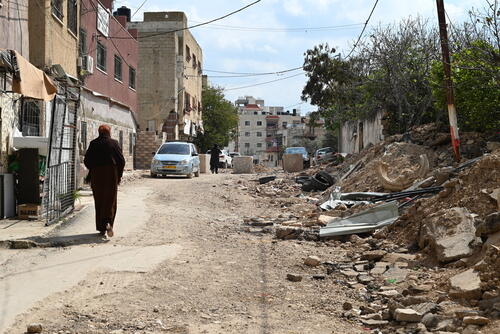
“How long they stop us for does not depend on the medical emergency, it depends on the mood of the soldiers,” he says.
“They make us wait for one or two hours... Or they make us take another road. If the patient has a gunshot wound from the Israeli army, they can arrest the patient and even confiscate the ambulance.
“We don’t know what will happen to the patient then, if they will bring him to a hospital or to a prison and if he will receive medical care in the prison,” he says.
The alternative to avoiding long waiting times and harassment at checkpoints is receiving no medical care at all.
“Before 7 October, the situation was somewhat lighter, I used alternative routes to get where I needed to go, and my mental health therapist contacted me to ensure I continued my sessions,” says an MSF mental health patient from Nablus, in the north of the West Bank. “Coming here for the session comforts me. I don't feel like I'm in danger when I'm here,” she adds.
MSF teams have been present in the West Bank since 1989. In 2024, MSF increased the number of mobile clinics in the Hebron district to 13 to meet the increasing needs in the community. Between January and March 2024, our team provided over 6,000 outpatient consultations and around 1,400 individual mental health sessions, including assessment of new patients and follow up consultations, across the various locations.
In Hebron, our teams have adapted and expanded activities to ensure continuous care and access to general healthcare services for the most vulnerable and isolated patients. In Jenin and Tulkarem we are supporting and training medical and paramedical staff to provide first aid and lifesaving services in and outside the hospital in case of mass casualty and obstructed access to the premises.
MSF teams are also providing mental health support in clinics in Nablus, and Hebron, aiming to address critical gaps in mental healthcare provision and to ensure that those in need receive the support and care they require.



